
Seán Patrick Michael Sherrard, also known professionally as Johnny Logan, is an Australian-born Irish singer, songwriter and musician. He is best known for being the first performer to win the Eurovision Song Contest as a lead singer twice.

"Love Shine a Light" is a song by British rock band Katrina and the Waves written by Kimberley Rew. It represented the United Kingdom in the Eurovision Song Contest 1997 held in Dublin, resulting in the country's fifth and most recent win at the contest. It was released as a single on 28 April 1997 and later included on the band's ninth studio album, Walk on Water (1997), serving as the album's lead single.

"Ding-a-dong" is a song recorded by Dutch band Teach-In, with music composed by Dick Bakker and lyrics written by Will Luikinga and Eddy Ouwens. It represented the Netherlands in the Eurovision Song Contest 1975, held in Stockholm, winning the contest. It reached number 1 in both the Swiss and the Norwegian Singles Chart. Teach-In recorded the song in English, Dutch, and German.

Ireland has participated in the Eurovision Song Contest 57 times since making its debut at the 1965 contest in Naples, missing only two contests since, in 1983 and 2002. The current Irish participant broadcaster in the contest is Raidió Teilifís Éireann (RTÉ). Ireland shares a joint record total of seven wins with Sweden, and is the only country to have won three times consecutively. Ireland has finished second four times, while Sweden has done that just once.
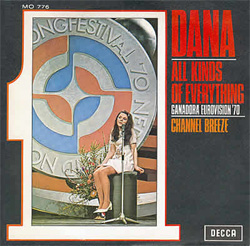
"All Kinds of Everything" is a song recorded by Irish singer Dana written by Derry Lindsay and Jackie Smith. It represented Ireland in the Eurovision Song Contest 1970 held in Amsterdam, resulting in the country's first ever win at the contest. The recording became an international hit.
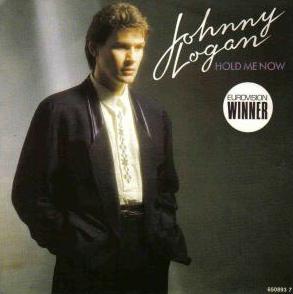
"Hold Me Now" is a song written and recorded by Irish singer-songwriter Johnny Logan. It represented Ireland in the Eurovision Song Contest 1987 held in Brussels, resulting in his second win at the contest, as well as the country's third victory.

"Ein bißchen Frieden" is a song recorded by German singer Nicole, with music composed by Ralph Siegel and German lyrics written by Bernd Meinunger. It represented Germany in the Eurovision Song Contest 1982, held in Harrogate, resulting in the country's first ever win at the contest.
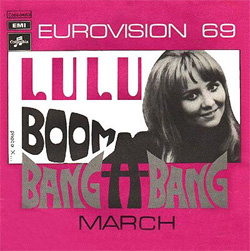
"Boom Bang-a-Bang" is a song recorded by Scottish singer Lulu, with music composed by Alan Moorhouse and lyrics by Peter Warne. It represented the United Kingdom in the Eurovision Song Contest 1969, held in Madrid, and became one of the four winning songs. It made No. 2 in the UK Singles Chart and was a major hit throughout Europe.

"Why Me?" is a 1992 song recorded by Northern-Irish singer Linda Martin written by Seán Sherrard. It represented Ireland in the Eurovision Song Contest 1992 held in Malmö, winning the contest.

"Nocturne" is a song recorded by Irish-Norwegian duo Secret Garden –Fionnuala Sherry and Rolf Løvland– with music composed by Løvland and lyrics written by Petter Skavlan. It represented Norway in the Eurovision Song Contest 1995 held in Dublin, resulting in the country's second win at the contest.

"Save Your Kisses for Me" is a song recorded by British group Brotherhood of Man, written by Tony Hiller with band members Lee Sheriden and Martin Lee. It represented the United Kingdom in the Eurovision Song Contest 1976 held in The Hague, winning the contest.
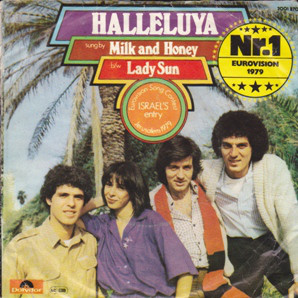
"Hallelujah" is a song recorded by Israeli band Milk and Honey with music composed by Kobi Oshrat and Hebrew lyrics written by Shimrit Orr. It represented Israel in the Eurovision Song Contest 1979 held in Jerusalem, winning the contest.
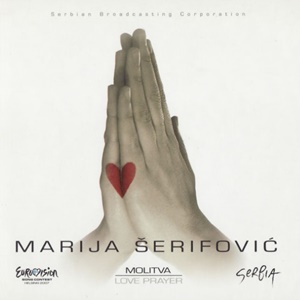
"Molitva" is a song recorded by Serbian singer Marija Šerifović with music composed by Vladimir Graić and Serbian lyrics written by Saša Milošević Mare. It represented Serbia in the Eurovision Song Contest 2007, held in Helsinki, resulting in the country's only ever win at the contest.
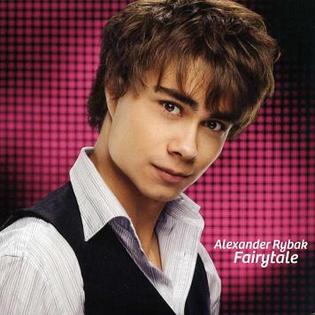
"Fairytale" is a song composed, written, and recorded by Belarusian-Norwegian singer-songwriter Alexander Rybak. It represented Norway in the Eurovision Song Contest 2009 held in Moscow, winning the contest. It is the first single from Rybak's debut album Fairytales released on 29 May 2009 just after the contest.
The Netherlands participated in the Eurovision Song Contest 2010 with the song "Ik ben verliefd (Sha-la-lie)" written by Pierre Kartner. The song was performed by Sieneke. The Dutch broadcaster Televisie Radio Omroep Stichting (TROS) internally selected the song for the 2010 contest in Oslo, Norway. "Ik ben verliefd (Sha-la-lie)" was presented to the public on 18 December 2009, while the national final Nationaal Songfestival 2010 was organised in order to select the Dutch representative. Five artists competed in the national final on 7 February 2010 where Sieneke was selected by Pierre Kartner as the winner following a tie between two of the artists based on the combination of votes from a four-member jury panel and an audience vote.

"Everyway That I Can" is a song recorded by Turkish singer Sertab Erener, with music composed by herself and Demir Demirkan, lyrics written by Demirkan, and production and arrangement by Ozan Çolakoğlu. It represented Turkey in the Eurovision Song Contest 2003, held in Riga, winning the contest. It was the first entry from Turkey in the contest that did not feature any Turkish lyrics.
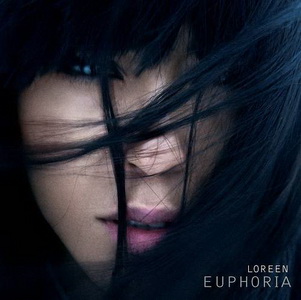
"Euphoria" is a song performed by Swedish singer Loreen. It was released on 26 February 2012 as the third single –first single internationally– from her debut studio album, Heal (2012). The song was written by Thomas G:son, Peter Boström and produced by Boström and SeventyEight. It represented Sweden in the Eurovision Song Contest 2012 held in Baku, Azerbaijan. It won the contest with a total of 372 points, at the time the second-highest point total in the contest's history. It received the highest number of maximum (12) points until then, with eighteen countries giving the song their top marks.
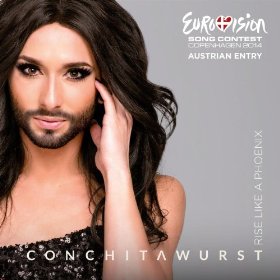
"Rise Like a Phoenix" is a song recorded by Austrian singer Conchita Wurst, written by Joey Patulka, Alexander Zuckowski, Julian Maas, and Charlie Mason. It represented Austria in the Eurovision Song Contest 2014 held in Copenhagen, resulting in the country's second win in the contest.

"Arcade" is a song by Dutch singer-songwriter Duncan Laurence written and composed by Laurence, Joel Sjöö, Wouter Hardy, and Will Knox. The song was released on 7 March 2019 by Spark Records. It was later included as the lead single on his debut studio album Small Town Boy, and also features on his debut EP Worlds on Fire.
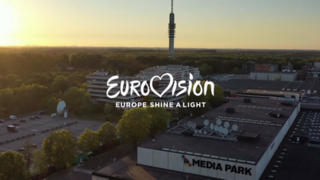
Eurovision: Europe Shine a Light was a live television programme, organised by the European Broadcasting Union (EBU) and produced by the Dutch broadcasters NPO, NOS and AVROTROS. It replaced the Eurovision Song Contest 2020, which was planned to be held in Rotterdam, Netherlands, but was cancelled due to the COVID-19 pandemic.



















